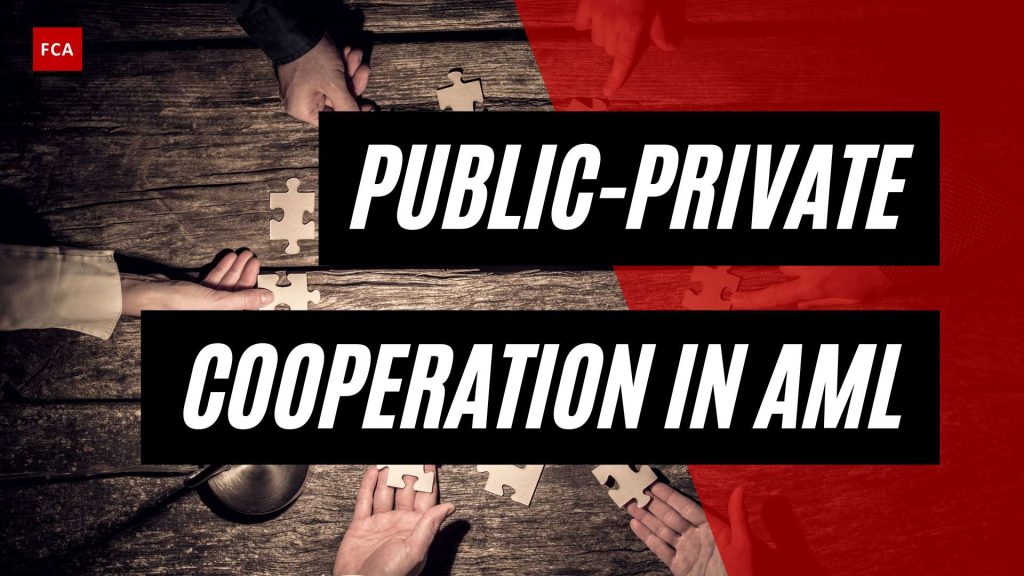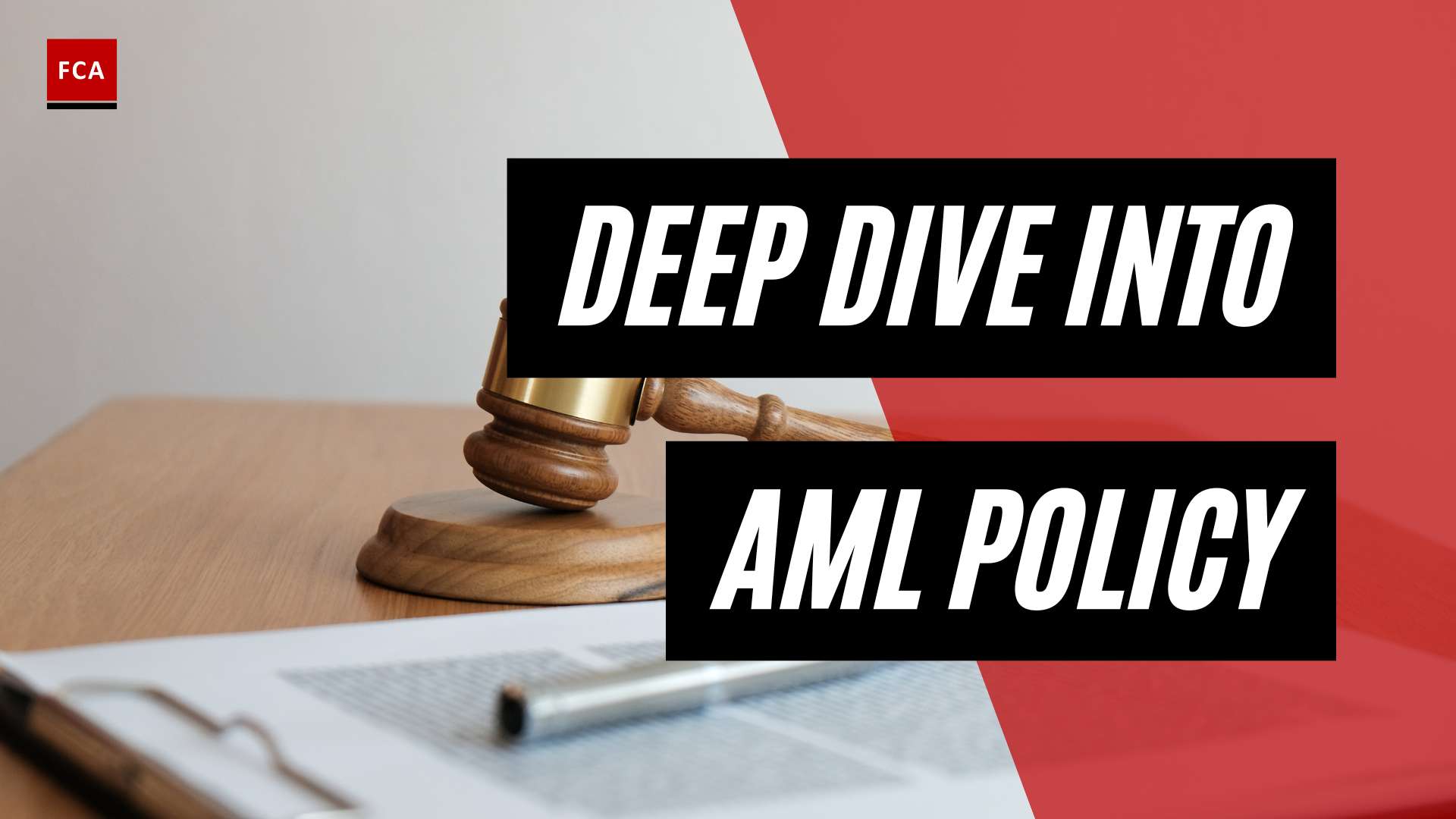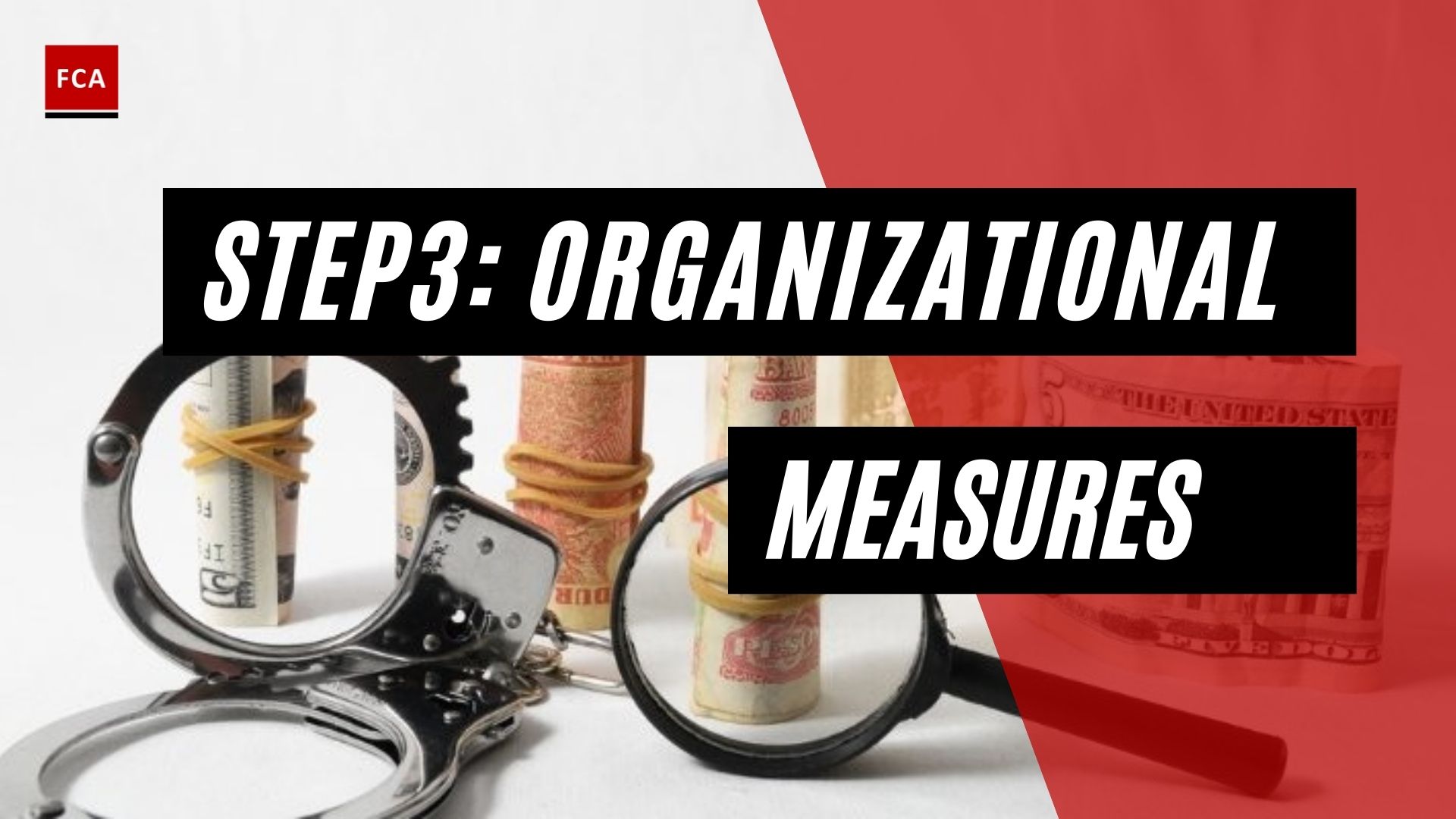Public-Private Partnerships in AML
Public-private cooperation in anti-money laundering (AML) investigations plays a crucial role in enhancing AML efforts by leveraging the strengths of both public and private sector entities. These partnerships enable collaboration, information sharing, and resource pooling to combat financial crimes such as money laundering and terrorist financing. Recognizing the importance of these collaborations, countries and international organizations actively promote public-private cooperation in AML investigations.
Enhancing AML Efforts through Collaboration
Public-private partnerships in AML investigations facilitate the collection, sharing, and analysis of information and resources, leading to more effective AML measures. By collaborating, government agencies, financial institutions, and other stakeholders can collectively address the challenges posed by cross-border and networked crimes, as well as the evolving techniques used by criminals (FATF). The benefits of public-private partnerships include:
-
Access to Information and Expertise: Public-private cooperation allows for the exchange of knowledge and expertise between different stakeholders. Financial institutions possess valuable information and insights that can enhance the capabilities of law enforcement and regulatory agencies in AML investigations. Collaboration ensures that relevant information is shared promptly and efficiently.
-
Bridging Intelligence Gaps: Public-private partnerships help bridge intelligence gaps by combining the resources and intelligence of both sectors. Financial institutions, with their extensive customer data and transaction monitoring systems, can provide valuable information to law enforcement agencies, enabling them to identify suspicious activities and potential money laundering schemes.
-
Holistic Approach to AML: Collaboration between the public and private sectors enables a holistic approach to AML efforts. By working together, stakeholders can develop comprehensive strategies, share best practices, and coordinate actions to detect and prevent financial crimes effectively. This integrated approach enhances the overall effectiveness of AML measures.
-
Enhanced Investigations and Enforcement Actions: Public-private partnerships provide law enforcement agencies with access to additional resources and expertise, enabling them to conduct more thorough investigations and take robust enforcement actions against money launderers and other financial criminals. Timely information sharing and collaboration contribute to more successful outcomes in detecting and prosecuting illicit activities.
Importance of Public-Private Cooperation
Public-private cooperation in AML investigations is vital in combating money laundering and terrorist financing effectively. Recognizing the significance of these partnerships, countries and international organizations, such as the Financial Action Task Force (FATF), emphasize the need for effective information-sharing mechanisms and collaboration between the public and private sectors (Alessa). The benefits of public-private cooperation include:
-
Efficient Utilization of Resources: Public-private partnerships optimize the utilization of resources by pooling together the expertise, technology, and data available in both sectors. This collaboration ensures that efforts to combat financial crimes are not duplicated, and resources are allocated effectively.
-
Fostering Trust and Accountability: By working together, the public and private sectors foster trust and accountability, leading to increased transparency and more effective AML measures. Collaboration promotes a shared responsibility in combating financial crimes and maintaining the integrity of the financial system.
-
Staying Ahead of Evolving Threats: The ever-evolving nature of financial crimes requires a proactive and adaptive approach. Public-private partnerships facilitate the exchange of information and insights on emerging threats, enabling stakeholders to stay ahead of evolving tactics used by money launderers and terrorist financiers.
Public-private partnerships in AML investigations are essential in addressing the challenges posed by financial crimes. By leveraging the collective expertise, resources, and technology of both sectors, these collaborations enhance the effectiveness of AML efforts and contribute to a more robust and resilient financial system.
Forms of Public-Private Cooperation
To effectively combat financial crimes, such as money laundering and terrorist financing, public and private entities collaborate through various forms of public-private cooperation in AML investigations. These partnerships aim to enhance the effectiveness of AML efforts by leveraging the strengths of both sectors. Let’s explore three common forms of public-private cooperation in the context of AML.
Information-Sharing Arrangements
Information-sharing arrangements play a crucial role in public-private cooperation in AML. These arrangements involve the exchange of information and intelligence between government agencies, financial institutions, and other relevant parties. By sharing valuable insights and data, these entities can collectively identify and prevent financial crimes more effectively.
Through information-sharing arrangements, financial institutions can provide law enforcement agencies and regulatory bodies with essential information related to suspicious activities, transactions, and individuals. This collaboration allows for a more comprehensive understanding of potential risks and enables law enforcement agencies to focus their investigations on high-priority cases. Additionally, it helps bridge gaps in intelligence and promotes a more holistic approach to AML efforts.
Task Forces and Advisory Boards
Task forces and advisory boards are another important form of public-private cooperation in AML investigations. These collaborative bodies bring together representatives from government agencies, financial institutions, and relevant stakeholders to collectively address AML challenges and develop strategies for combating financial crimes.
Task forces typically consist of multidisciplinary teams that work together to investigate complex cases and share expertise across sectors. By pooling resources, knowledge, and investigative capabilities, task forces can effectively target and disrupt criminal networks involved in money laundering and other illicit activities.
Advisory boards, on the other hand, provide a platform for public and private sector representatives to share insights, discuss emerging trends, and provide guidance on AML policies and regulations. These boards facilitate dialogue and collaboration, ensuring that AML efforts remain aligned with evolving industry practices and regulatory requirements.
Working Groups and Joint Initiatives
Working groups and joint initiatives are collaborative efforts that bring together public and private entities to address specific AML challenges or focus on particular industry sectors. These groups typically consist of subject matter experts who work together to develop best practices, share knowledge, and devise solutions to common AML issues.
Working groups and joint initiatives allow for focused discussions and the exchange of ideas between relevant stakeholders. They provide an avenue for industry professionals and regulators to collaborate on developing effective AML measures, enhancing compliance standards, and sharing expertise and experiences.
By leveraging the collective knowledge, resources, and expertise of all participants, working groups and joint initiatives drive innovation and facilitate the adoption of best practices in AML investigations.
Public-private cooperation in AML investigations is essential for combating financial crimes effectively. Information-sharing arrangements, task forces and advisory boards, and working groups and joint initiatives play a crucial role in leveraging the strengths of both sectors to enhance AML efforts. These collaborative forms of cooperation enable the exchange of information, expertise, and resources, ultimately leading to more robust and effective AML investigations and enforcement actions.
Benefits of Public-Private Partnerships
Public-private partnerships play a crucial role in the fight against money laundering and have numerous benefits that contribute to the effectiveness of Anti-Money Laundering (AML) investigations. These partnerships bridge intelligence gaps, promote a holistic approach to AML, and enhance investigations and enforcement actions.
Bridging Intelligence Gaps
One of the significant benefits of public-private partnerships in AML is the bridging of intelligence gaps. By leveraging the collective expertise and resources of both the public and private sectors, these partnerships enhance information sharing and analysis. The private sector, including financial institutions and other relevant entities, possesses valuable insights and data that can aid law enforcement and regulatory agencies in identifying and investigating suspicious financial activities (Alessa). This collaboration helps close the information gaps that often exist between these entities, enabling more comprehensive AML investigations.
Holistic Approach to AML
Public-private partnerships promote a more holistic approach to AML efforts. The collaboration between the public and private sectors allows for the sharing of knowledge, best practices, and innovative strategies in combating money laundering (Alessa). By combining the strengths of both sectors, these partnerships foster a more comprehensive understanding of money laundering risks and enable the development of more effective prevention and detection measures. This holistic approach helps address the constantly evolving tactics employed by money launderers and terrorist financiers (CFATF-GAFIC).
Enhanced Investigations and Enforcement Actions
Public-private partnerships significantly enhance investigations and enforcement actions in the realm of AML. The collaboration between the public and private sectors allows for the seamless exchange of information, which can uncover hidden connections and patterns of illicit financial activities. This exchange of information improves the identification of suspicious transactions and strengthens the overall effectiveness of AML investigations (CFATF-GAFIC). Moreover, public-private partnerships facilitate cooperation in conducting joint operations, sharing resources, and coordinating efforts to combat money laundering and terrorist financing effectively. By leveraging the collective intelligence and capabilities of both sectors, these partnerships enhance enforcement actions and contribute to the disruption of illicit financial networks.
Public-private partnerships are an essential component of AML efforts, enabling the bridging of intelligence gaps, fostering a holistic approach, and enhancing investigations and enforcement actions. The collaboration between the public and private sectors strengthens the resilience of financial systems against money laundering activities, protects the integrity of the financial sector, and contributes to national security efforts in combating illicit financial activities (CFATF-GAFIC). By continuing to promote and strengthen these partnerships, the fight against money laundering can be more effective and robust.
International Recognition and Initiatives
In the global fight against money laundering, public-private cooperation has gained international recognition and is seen as a crucial component of effective anti-money laundering (AML) investigations. Several initiatives and organizations have emerged to foster collaboration between the public and private sectors. Let’s explore the Financial Action Task Force (FATF) and some success stories in this realm.
Financial Action Task Force (FATF)
The Financial Action Task Force (FATF) plays a pivotal role in promoting public-private cooperation in AML investigations. The FATF is an intergovernmental organization that sets international standards and policies to combat money laundering and terrorist financing. Recognizing the importance of public-private cooperation, the FATF encourages countries to establish effective information-sharing mechanisms between the public and private sectors (Alessa).
The FATF’s Recommendations provide guidance on the role of public-private cooperation in AML investigations, emphasizing the need for collaboration, information sharing, and joint initiatives. The organization’s framework helps countries establish legal frameworks and operational mechanisms for effective public-private partnerships.
Success Stories: JMLIT, FinCEN Exchange, AFCA
Several successful examples of public-private cooperation in AML investigations have emerged worldwide. These initiatives have demonstrated the effectiveness of collaboration between the public and private sectors in combating money laundering.
-
Joint Money Laundering Intelligence Taskforce (JMLIT): Established in the United Kingdom, JMLIT brings together law enforcement agencies, regulators, and financial institutions to exchange intelligence and develop innovative solutions to combat money laundering. This collaborative approach has proven to be highly effective in identifying and preventing money laundering activities.
-
FinCEN Exchange: In the United States, the Financial Crimes Enforcement Network (FinCEN) has created the FinCEN Exchange program. This initiative facilitates information sharing between law enforcement agencies and financial institutions in order to enhance the detection and prevention of illicit financial activities. The program fosters a cooperative environment where participants can share insights and best practices in AML investigations (CFATF-GAFIC).
-
Asia/Pacific Group on Money Laundering Financial Crime Agency Network (AFCA): The AFCA network promotes public-private cooperation in the Asia/Pacific region. It facilitates information sharing and collaboration among financial intelligence units, law enforcement agencies, and the private sector. The AFCA network has been instrumental in enhancing AML investigations and efforts to combat money laundering (CFATF-GAFIC).
These success stories highlight the value and effectiveness of public-private partnerships in AML investigations. By working together, governments, law enforcement agencies, and financial institutions can leverage their collective expertise, resources, and data to detect, prevent, and combat money laundering activities more effectively.
Public-private cooperation in AML investigations is crucial for bridging intelligence gaps, taking a holistic approach to AML efforts, and enhancing investigations and enforcement actions. By actively participating in information-sharing arrangements, task forces, and joint initiatives, stakeholders can collaborate to combat money laundering and protect the integrity of the financial system.
Challenges and Considerations
In the realm of public-private cooperation in AML investigations, there are several challenges and considerations that need to be addressed. These include the legal framework and data protection, risk notifications and customer due diligence, and the processing of personal data.
Legal Framework and Data Protection
One of the primary challenges in implementing mechanisms for enhanced public-private cooperation is the lack of a clear legal basis in many countries. While the law primarily focuses on coercive measures in criminal investigations, there is a need for guidance on the lawfulness of information transfer to obliged entities and the extent to which authorities may ask obliged entities to process customer data beyond their obligations under the AML/CFT regulatory framework (EUCRIM).
To address this challenge, it is crucial to establish a robust legal framework that defines the rights and responsibilities of both public and private entities involved in AML investigations. This framework should ensure compliance with data protection and privacy laws, while also enabling effective information sharing and cooperation. By clarifying the legal boundaries and obligations, public and private entities can work together more seamlessly to combat money laundering.
Risk Notifications and Customer Due Diligence
Risk notifications play a significant role in public-private cooperation in AML investigations. These notifications allow the Financial Intelligence Unit (FIU) or other authorities to inform obliged entities about situations that entail a high financial crime risk and require additional customer due diligence (CDD) measures (EUCRIM). The purpose is to support obliged entities in their risk management by identifying high-risk situations that require scrutiny.
However, the implementation of risk notifications also poses challenges. There is a concern that risk notifications can lead to de-risking and stigmatization of affected customers. To address this, it is essential to strike a balance between risk mitigation and the potential adverse effects on innocent customers. Clear guidelines and effective communication channels between public and private entities can help mitigate these challenges.
Processing of Personal Data
Financial analysis requests often involve competent authorities asking obliged entities to analyze customer data to produce findings that may be relevant for authorities, such as determining indirect control of companies or retracing the flow of money. However, the processing of personal data raises concerns related to privacy, reliability of findings, and unintended detrimental consequences for affected customers.
To address these challenges, it is crucial to establish strict data protection protocols and ensure that personal data is handled securely and in compliance with relevant laws and regulations. Public-private cooperation should prioritize data privacy and establish mechanisms to validate the accuracy and reliability of the findings derived from customer data analysis.
By addressing these challenges and considering the legal framework, data protection, risk notifications, customer due diligence, and the processing of personal data, public-private cooperation in AML investigations can be strengthened. It is essential to strike a balance between effective collaboration and protecting the rights and privacy of individuals involved in the investigation process.
Role of Technology in Public-Private Cooperation
In the realm of public-private cooperation in AML investigations, technology plays a crucial role in enhancing the efficiency and effectiveness of anti-money laundering efforts. Advanced technologies such as artificial intelligence (AI) and machine learning have revolutionized the way AML investigations are conducted. Let’s explore three key aspects of technology in public-private cooperation in AML: AI and machine learning, automation and data analysis, and detecting suspicious patterns and anomalies.
AI and Machine Learning in AML
The use of AI and machine learning in AML investigations has significantly transformed the field. These technologies enable the automation of processes, the analysis of large volumes of data, and the identification of patterns that may indicate potential money laundering activities. By leveraging AI and machine learning algorithms, public and private entities can sift through vast amounts of data more efficiently, saving time and resources.
AI and machine learning algorithms can learn from historical data and adapt to evolving money laundering techniques, aiding in the identification of suspicious transactions and behaviors. These technologies can also help financial institutions and authorities in implementing risk-based approaches to AML, focusing resources on high-risk areas and transactions.
Automation and Data Analysis
Automation plays a crucial role in streamlining AML investigations. Through automation, repetitive and time-consuming tasks can be performed more efficiently, allowing investigators to focus on more complex aspects of their work. Automated systems can assist in data collection, data analysis, and report generation, enabling investigators to make informed decisions quickly.
Data analysis is a critical component of AML investigations. Advanced analytical tools can process vast amounts of structured and unstructured data, including transaction records, customer information, and external data sources. By analyzing this data, public and private entities can identify patterns, relationships, and anomalies that may indicate potential money laundering activities.
Detecting Suspicious Patterns and Anomalies
Technology enables the detection of suspicious patterns and anomalies that may go unnoticed by manual processes. AI and machine learning algorithms can identify unusual transaction patterns, such as sudden spikes in activity or transactions involving high-risk jurisdictions. These technologies can also detect anomalies in customer behavior, helping to identify potential money laundering risks.
By utilizing technology to detect suspicious patterns and anomalies, public and private entities can strengthen their AML efforts and promptly identify potential money laundering activities. This proactive approach enables investigators to take appropriate action, such as conducting enhanced due diligence or reporting suspicious transactions to relevant authorities.
In the realm of public-private cooperation in AML, technology acts as a catalyst, empowering both public authorities and financial institutions to combat money laundering more effectively. By harnessing the power of AI and machine learning, automating processes, and leveraging data analysis tools, public and private entities can stay ahead of emerging money laundering techniques and protect the integrity of the financial system.
Financial Institutions in Public-Private Cooperation
Financial institutions play a vital role in public-private cooperation efforts in anti-money laundering (AML) investigations. By actively participating in these partnerships, financial institutions contribute to the fight against financial crimes and help maintain the integrity of the financial system.
Timely Information Sharing
One of the key aspects of public-private cooperation is the exchange of information between financial institutions and law enforcement agencies. By sharing relevant and timely information, financial institutions can support AML investigations and enhance the effectiveness of law enforcement efforts.
Financial institutions have access to valuable data and insights that can assist in identifying suspicious activities. This includes transactional data, customer information, and internal risk assessments. By promptly sharing this information with the appropriate authorities, financial institutions can aid in the identification and prevention of illicit financial activities.
To facilitate effective information sharing, financial institutions must establish robust mechanisms to ensure compliance with data protection regulations and maintain the confidentiality of sensitive information. By adhering to strict data privacy protocols, financial institutions can build trust and foster stronger partnerships with law enforcement agencies.
Due Diligence and Compliance Programs
Financial institutions have a responsibility to implement robust due diligence procedures and compliance programs to prevent money laundering and other financial crimes. These programs help identify and assess the risks associated with customer relationships, transactions, and business activities.
By actively participating in public-private partnerships, financial institutions can collaborate with law enforcement agencies to enhance their due diligence processes. This collaboration allows for a more comprehensive understanding of emerging money laundering techniques, typologies, and red flags.
Furthermore, financial institutions can contribute to the development of industry best practices and standards through their involvement in public-private cooperation initiatives. By collectively sharing knowledge and expertise, financial institutions can strengthen their AML frameworks and improve their ability to detect and prevent illicit activities.
Maintaining the Integrity of the Financial System
Financial institutions play a critical role in maintaining the integrity of the global financial system. Through their participation in public-private partnerships, they contribute to the overall stability and security of the financial ecosystem.
By actively engaging in AML investigations and sharing information, financial institutions demonstrate their commitment to combating financial crimes. This collaboration helps identify and disrupt illicit financial flows, preventing the integration of illicit funds into the legitimate economy.
Financial institutions must continue to prioritize AML efforts and invest in technologies and resources that enable them to detect and prevent money laundering activities effectively. By working closely with law enforcement agencies, financial institutions can help ensure a robust and resilient financial system that protects against illicit financial activities.
In conclusion, financial institutions play a crucial role in public-private cooperation efforts in AML investigations. Through timely information sharing, robust due diligence and compliance programs, and a commitment to maintaining the integrity of the financial system, financial institutions contribute to the collective fight against money laundering and other financial crimes. By actively participating in public-private partnerships, financial institutions demonstrate their dedication to safeguarding the global financial ecosystem.








